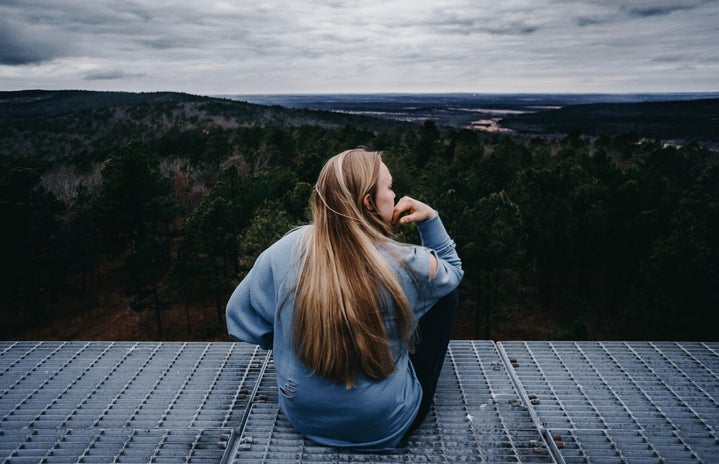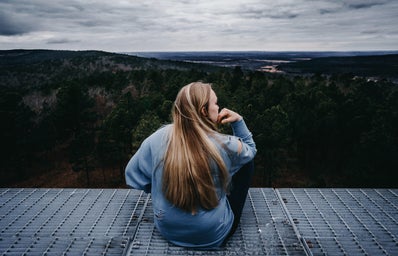Did you know that having access to water wasn’t always a human right? Yes, you read that correctly. Water is essential to surviving, so you would think that everyone would legally have accessibility to water, right? Well it wasn’t until 2009 when water was officially defined as a human right by the United Nations.
On March 6th I went to an ecofeminism conference and I learned a lot about how nature is parallel to feminism. The conference was a fundraiser for Three Oaks, a non-profit organization that protects women from domestic abuse and provides shelter and services for these women. Three Oaks is mainly located in the Quinte region, which is less than an hour away from Kingston, Ontario. The Hasting & Prince Edward County, Ontario branch had guest speakers Maya Navrot and Maude Barlow discuss their work on ecofeminism and explained why it is so important for our communities.
I went to the conference with an open mind since I wasn’t very knowledgeable regarding what ecofeminism was to begin with. Here are the main points I took away from the two incredible speakers.
1. The definition of ecofeminism
Ecofeminism is a branch of feminism which has to do with analyzing mother nature and the ecosystem. In the easiest of terms, ecofeminism is the relationship between women and the natural earth. Ecofeminism embraces co-existing with the earth instead of taking over the right and colonizing it. The earth includes animals, water, land, and anything else that has to do with the environment. Basically, feminism, at its basic, is about equality and respect. So for ecofeminists, we believe that we need to treat ‘mother nature’ with the same equality and respect. Just like how throughout history women have been oppressed, so has the earth. It is our responsibility to not dominate nature, but rather work with our environment and honour all it has to give.
2. Generational ecofeminists is what is keeping us going
The first speaker, Maya Navrot, is an Education & Stewardship Coordinator for Quinte Conservation in Belleville, Ontario. Her talk was very interesting because she discussed her personal stories about growing up in and around nature. Navrot came from a line of ecofeminist mothers and families who fought to preserve lakes and land in the Quinte area. Navrot didn’t exactly use the words ‘generational feminists,’ but that is the term I would use to describe what Navrot talked about. Just like how feminist are fighting for women equality now, they also do it to evoke change for future generations. Ecofeminists work hard to do the same, because without clean lakes, land, or environments, our future generations will not be able to survive. So thank you to our generational feminists who have passed down their knowledge of preserving nature so that our future generations can swim in lakes, play in luscious green grass and have a happy childhood.
3. We can all learn a few life lessons from Maude Barlow
I’ll admit, I didn’t know who Maude Barlow was when I first signed up for this conference. I didn’t quite know what to expect from her, as I went into this event blind. Remember that fact I wrote about in the first paragraph, “It wasn’t until 2009 when water was seen as a human right by the United Nations.” Well, the leader of the team who proposed the right was Barlow. She created the idea after she realized that water was being utilized as more of a tradable good than for survival and people were suffering because of this. Being the amazing feminist she is, Barlow made water a human right. In her speech, Barlow discussed the idea ‘who owns water’ and she has written about this in her book Whose Water is it, Anyway? Taking water protection into public hands. Barlow explained that since water is for public use that it is our responsibility to share among the earth and respect what water we have. One thing that Barlow said that stuck out to me was, “The same water we use today is from the dinosaurs and it will be the same water we use forever”. What she meant by that is that humans should be eco-conscious because there is still a chance to save our earth.
After her talk, I got a chance to meet the woman who has done so much in the feminism world. Maude Barlow shook my hand, asked me my name and what I was studying. When I told her that I was studying gender studies, her face lit up and she said, “That is wonderful, we need more people like you to learn about those issues, keep going and good luck,”and let me tell you, I almost teared up. I realized that even by learning about feminism and being an advocate for different types of feminism, I am truly am making a difference. Anyone else who simply just educates themselves is doing the exact same thing.

For more information or to support the Three Oaks organization, click here. https://threeoaks.ca




